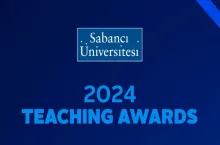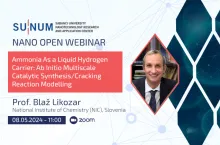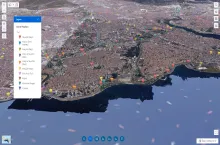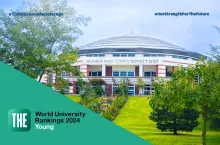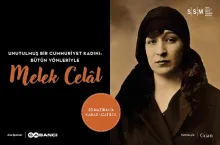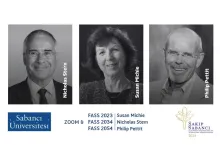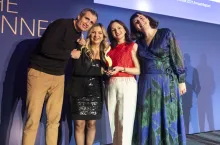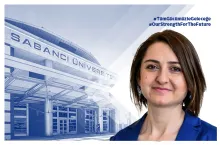02/05/2024
01/05/2024
22/04/2024
Lord Nicholas Stern, the 2020 winner of the Sakıp Sabancı International Research Awards Special Jury Prize, Professor of Economics and Management at the London School of Economics and Political Sciences; Susan Michie, the 2021 winner of the Prize, Director of the Center for Behavior Change at University College London; and Philip Pettit, the 2023 winner of the Prize, Princeton University L.S. Rockefeller Professor of Human Values and Professor of Philosophy at Australian National University Canberra, will come together with Sabancı University students for a stimulating conversation.

The talks, which will take place on Monday, April 29, 2024, at 11:00 in the Faculty of Arts and Social Sciences, classrooms 2023, 2034 and 2054, can also be followed online.
Lord Nicholas Stern will address the effects of climate change on the world economy
Lord Nicholas Stern is the IG Patel Professor of Economics and Government, Chair of the Grantham Research Institute on Climate Change and the Environment, and Head of the India Observatory at the London School of Economics. He worked as Chief Economist at the European Bank for Reconstruction and Development between 1994 and 1999, and as Chief Economist and Senior Vice President at the World Bank between 2000 and 2003. He was knighted for services to economics in 2004, made a cross-bench life peer as Baron Stern of Brentford in 2007, and appointed Companion of Honour for services to economics, international relations, and tackling climate change in 2017. Stern was found deserving of the Special Jury Prize for his research on the effects of climate change on the world economy within the scope of the year's theme "Economy and the Future of Turkey" at the 2020 Sakıp Sabancı International Research Awards.
The talk with Lord Nicholas Stern will take place at 11:00 in FASS classroom 2034.
To participane online: https://sabanciuniv.zoom.us/j/97104275400
Susan Michie will answer questions about health psychology
Professor Michie, who conducts research in the field of health psychology at University College London, is the Director of the Center for Behavior Change Research and a member of the Academy of Medical Sciences and the Academy of Social Sciences, as well as serving as co-director, scientific board member and consultant in many research institutions. She acted as Chair of WHO’s Behavioural Insights and Sciences Technical Advisory Group, participated in the Lancet’s Covid-19 Commission and served as an expert advisor on the UK Government’s Scientific Advisory Group in Emergencies and its Behavioural Science group in addition to chairing the Academy of Social Science’s ‘Health of People’ project. Professor Michie's scientific research focuses on the sustainable behavioral change necessary to protect health and the environment.
Michie was found deserving of the Special Jury Prize in 2021 within the scope of the year's topic "The Post-Corona World and Turkey: Social, Psychological and Political Effects of the Pandemics" at the Sakıp Sabancı International Research Awards.
The talk with Susan Michie will take place at 11:00 in FASS classroom 2023.
To participane online: https://sabanciuniv.zoom.us/j/99236249674
Philip Pettit will discuss the issue of Republicanism in the context of political philosophy
Philip Pettit is L.S. Rockefeller University Professor of Politics and Human Values at Princeton University, where he has taught political theory and philosophy since 2002, and for a period that began in 2012-13 holds a joint position as Distinguished University Professor of Philosophy at the Australian National University, Canberra. He was appointed a Companion of the Order of Australia for his work in the field of political philosophy.
Professor Philip Pettit has made important contributions to the development of the understanding of Civic Republicanism with his academic studies. Professor Philip Pettit has two books translated into Turkish, namely A Companion to Contemporary Political Philosophy - Çağdaş Siyaset Felsefesi Kılavuzu & Disiplinler ve İdeolojiler (Dipnot Publishing House, 2016) and Republicanism - Cumhuriyetçilik (Ayrıntı Publishing House, 1998).
Pettit was found deserving of the Special Jury Prize for the theme of the year, "The 100th Anniversary of the Republic of Türkiye: Republicanism in Theory and Application", at the Sakıp Sabancı International Research Awards in 2023.
The talk with Philip Pettit will take place at 11:00 in FASS classroom 2054.
To participane online: https://sabanciuniv.zoom.us/j/98078198368
22/04/2024


